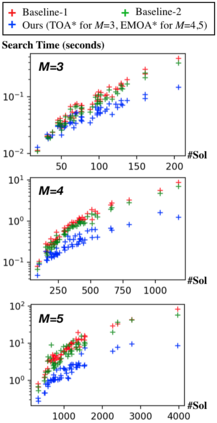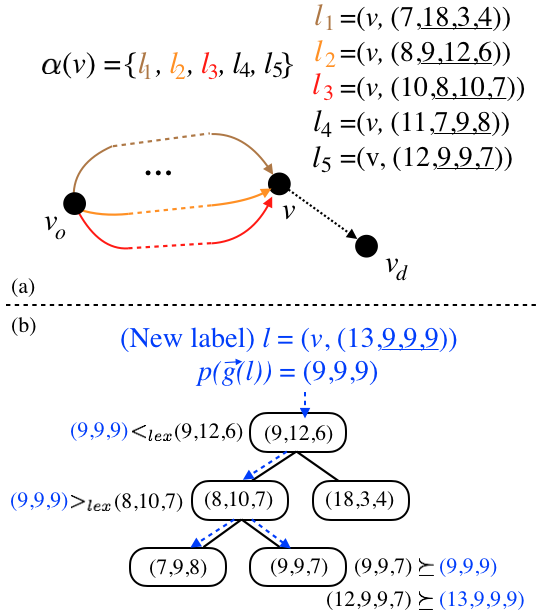This work addresses the Multi-Objective Shortest Path Problem (MO-SPP): Given a graph where each edge is associated with a non-negative cost vector, MO-SPP aims to find all the Pareto-optimal paths connecting the given start and goal nodes. To solve MO-SPP, the popular multi-objective A* (MOA*) like algorithms maintain a "frontier" set at any node during the search to keep track of the non-dominated paths that reach that node. The computational efficiency of MOA* algorithms directly depend on how efficiently one can maintain the frontier sets. Recently, several techniques have been developed in the literature to address this issue mainly for two objectives. In this work, we introduce a new method to efficiently maintain these frontiers for multiple objectives by leveraging balanced binary search trees. We provide extensive simulation results for problems with three, four and five objectives to show that our method outperforms existing techniques by an order of magnitude in general.
翻译:这项工作涉及多目标最短路径问题(MO-SPP):考虑到每个边缘与非负成本矢量相关联的图表,MO-SPP旨在寻找连接给定起始点和目标节点的所有Pareto最佳路径。为了解决MO-SPP,广受欢迎的多目标A*(MOA*)这样的算法在任何节点保持一个“前沿”设置,以跟踪到达该节点的非主导路径。MOA* 算法的计算效率直接取决于人们如何有效地维持前沿数据集。最近,文献中为解决这一问题开发了几种技术,主要用于两个目标。在这项工作中,我们引入了一种新方法,通过利用平衡的双线搜索树来有效地维护这些边界,以实现多重目标。我们为涉及三、四和五个目标的问题提供了广泛的模拟结果,以显示我们的方法在一般规模上超越了现有技术。








